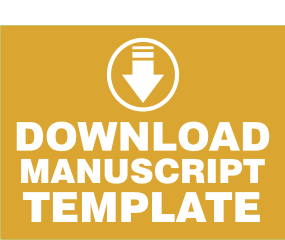The Effect Of Project Based Learning Model On Students Learning Outcomes In 5 Grade Thematic Learning At SDN 24 Batangase Maros
(1)
(*) Corresponding Author
DOI: https://doi.org/10.26858/ijest.v2i2.30983
Abstract
This research is an experimental research type with a quantitative approach. This study aims to describe the application of the project-based learning model to the thematic learning for class V at SDN 24 Batangase Maros, and to describe student learning outcomes in thematic learning for class V students at SDN 24 Batangase Maros. The population of this study were fifth grade students at SDN 24 Batangase Maros with a total population of 92 students consisting of 3 classes. The sample in this study were students of class VB AND VC with a total of 59 students. Data collection techniques in this research are observation, test and documentation. After the data is collected then the processing is carried out by statistical analysis and inferential statistics with the help of IBM SPSS version 26. The results of the descriptive analysis show that the average value of learning outcomes in the experimental class before using project based learning (pre-test) is 35.83, which means it is at poor category, while the average score of students after implementing the project based learning strategy (post-test) was 69.17 which was in the good category. Furthermore, the average value of student learning outcomes in the control class that was not treated without applying the project based learning model (pre-test) was 35.69 which was in the less category while the average value was not treated without applying project based learning (post-test). ) is 53.28 which is in the sufficient category. Based on the results of these studies, there is a positive effect of the application of the project based learning model on learning outcomes in the thematic learning of fifth grade students at SDN 24 Batangase Maros.
References
Agus Suprijono. (2013). CooperatVe Learning Teori dan Aplikasi PAIKEM. Yogyakarta: Pusaka Pelajar
Akrim, Nurzannah, Ginting, N. (2018). Pengembangan Program Pembelajaran Tematik Terpadu Bagi Guru-Guru SD Muhammadiyah di Kota. Jurnal Prodikmas: Hasil Pengabdian Masyarakat, 2, 2580-306
Asep, J., & Haris, A. (2013). Evaluasi Pembelajaran. Multi Pressindo.
Asrul. Ananda, R. Rosnita. (2014). Evaluasi Pembelajaran. Bandung: citapustaka Media.
Badrullah, Asdar, & Rahyuddin. (2016). Metode Penelitian. Kretakupa.
Daryanto. (2014). Pembelajaran Tematik Terpadu Terintegrasi Kurikulum 2013. Yogyakarta: Gava Media.
Liling, A. (2020). Pengaruh Penerapan Model Snowball Throwing terhadap Hasil Belajar IPS Kelas VI SD 183 Bayuntana Kecamatan Tomoni Kabupaten Luwu Timur. UnVersitas Negeri Makassar.
Lubis, M, A. Azizan, N. (2020). Pembelajaran Tematik SD/MI. Jakarta: KENCANA
Mahanal. (2009). Model-model Pembelajaran. Yogyakarta: Gava Media.
Nila lestari. (2019). Penerapan Model Pembelajaran Berbasis Proyek Untuk Meningkatkan Aktivitas dan Hasil Belajar Siswa Kelas V SD Ar-Rahman Misriadi Desa Stabat Lama Langkat. Jurnal Pendidikan dan Pembelajaran Terpadu (JPPT) Volume 01, No 01, Juni 2019 p. 13 - 23
Parwati, Suryawan, & Apsari. (2019). Belajar dan pembelajaran. Depok: PT Raja Grafindo Persada.
Payadna. I. P. A. A. Jayantika. I. G. A. N. T. (2018). Panduan Penelitian Eksperimen Beserta Analisis Statistik Dengan SPSS .Sleman: Depublish.
Peraturan Mentri Pendidikan dan Kebudayaan Republik Indonesia Nomor 23 Tahun 2016. Standar Penilaian Pendidikan. Jakarta
astowo. A. (2019). Analisis Pembelajaran Tematik Terpadu. Jakarta: KENCANA
Rosmawati. (2018). Penerapan Model Pembelajaran Kooperatif Tipe Snowball Throwing untuk Meningkatkan Hasil Belajar IPS Siswa Kelas VV.B SMP Negeri 33 Makassar. Jurnal Ekonomi dan Pendidikan, 1, 34–43.
Rusman. (2016). Pembelajaran Tematik Terpadu:Teori Praktik dan Penilaian. PT Raja Grafindo Persada.
Samanthis. (2014). Pembelajaran Abad 21. Yogyakarta: Gava Media.
Santyasa, I Wayan. (2006). Pembelajaran inovatif: model kolaboratif, basis proyek dan orientasi NOS. Makalah.Semarapura: UnVersitas Pendidikan Ganes0ha.
Suhelli. (2018. Strategi Guru dalam Pencapaian Tujuan Pembelajaran Tematik pada MIN di Kota Banda. Jurnal Pascasarjana UIN Ar-Raniry . jurnal.ar-raniry.ac.id
Sugiyono. (2016). Metode Penelitian Kuantitatif Kualitatif dan R&D. Alfabeta.
Supardi. (2016). Belajar dan Pembelajaran. Rineka Cipta.
Susanto, A. (2016). Teori Belajar & Pembelajaran di Sekolah Dasar. Kencana Preada Media Grup.
Tampubolon. (2014). Penelitian Tindakan Kelas. Erlangga.
Tinenti, Yanti Rosinda. (2016). Model Pembelajaran Berbasis Proyek (PBP) dan Penetapannya dalam Proses Pembelajaran di Kelas. Yogyakarta: CV. Budi Utama.
Article Metrics
Abstract view : 138 times |Refbacks
- There are currently no refbacks.
Copyright (c) 2023 Nurhikma Sari

This work is licensed under a Creative Commons Attribution-NonCommercial-ShareAlike 4.0 International License.
International Journal of Elementary School Teacher
ISSN 2776-6233 (online)
Email: [email protected]

This work is licensed under a Creative Commons Attribution-ShareAlike 4.0 International License.









